
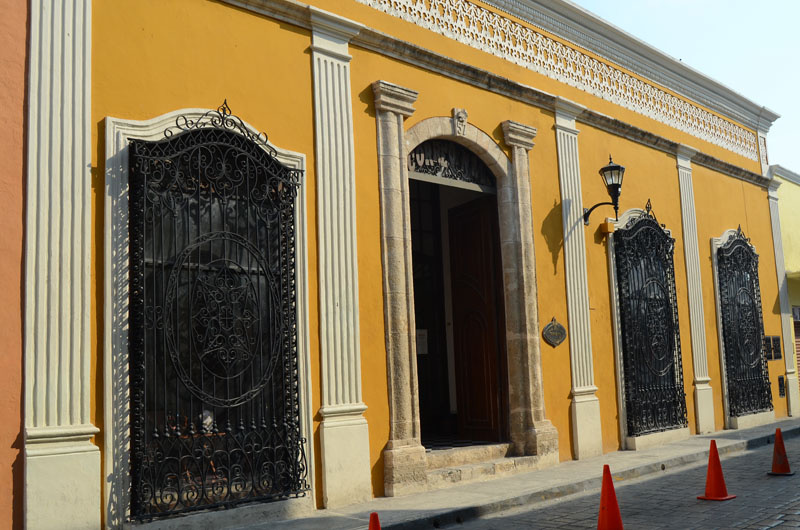
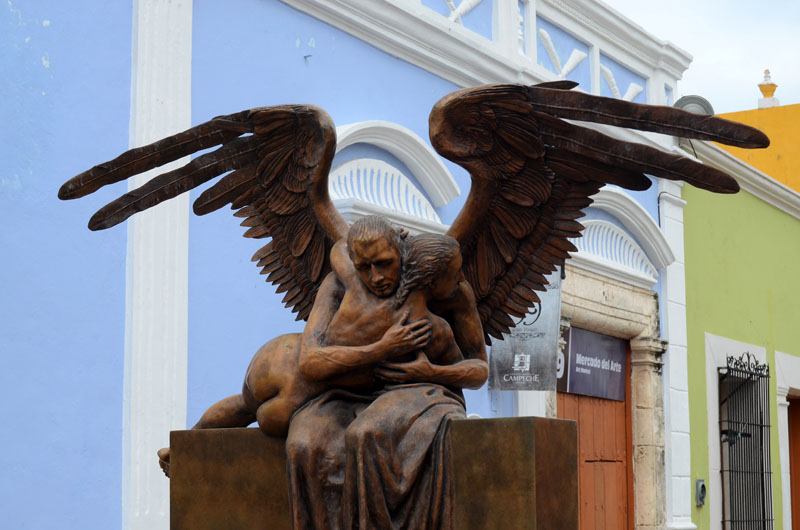

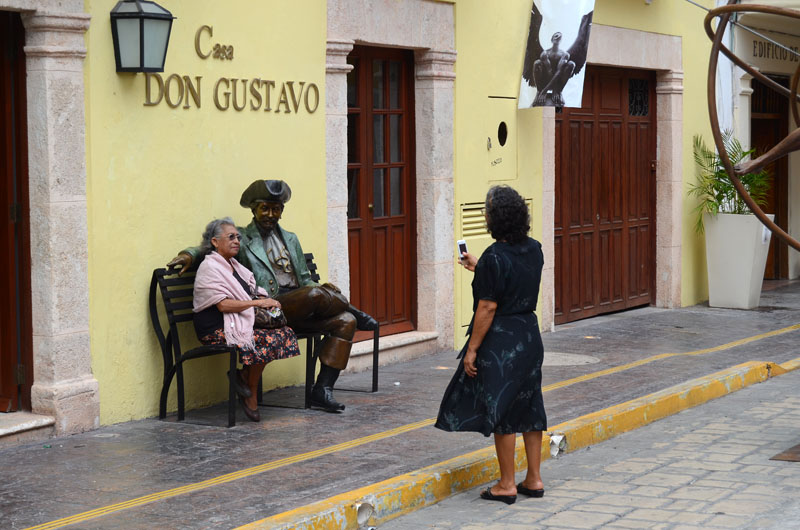
Adding to the delight of walking around the historical center of Campeche were artworks by Jorge Marin

The city may be pretty, but it is also practical and used for everyday business
Campeche
Campeche is the gold standard, so to speak, for the typical layout of a Spanish colonial city. There is the town square with its fountain and adjacent Cathedral and the surrounding homes of the Conquistadors and the ruling members of the society, spreading out from there are the homes of wealthy middle-class citizens. In the case of Campeche, we have the additional bonus of the proximity of the Gulf and of a great waterfront and parts of city walls and citadels, all lovingly restored and beautifully painted. |
 |
 |
 |
 |
 |
Adding to the delight of walking around the historical center of Campeche were artworks by Jorge Marin |
 |
The city may be pretty, but it is also practical and used for everyday business |
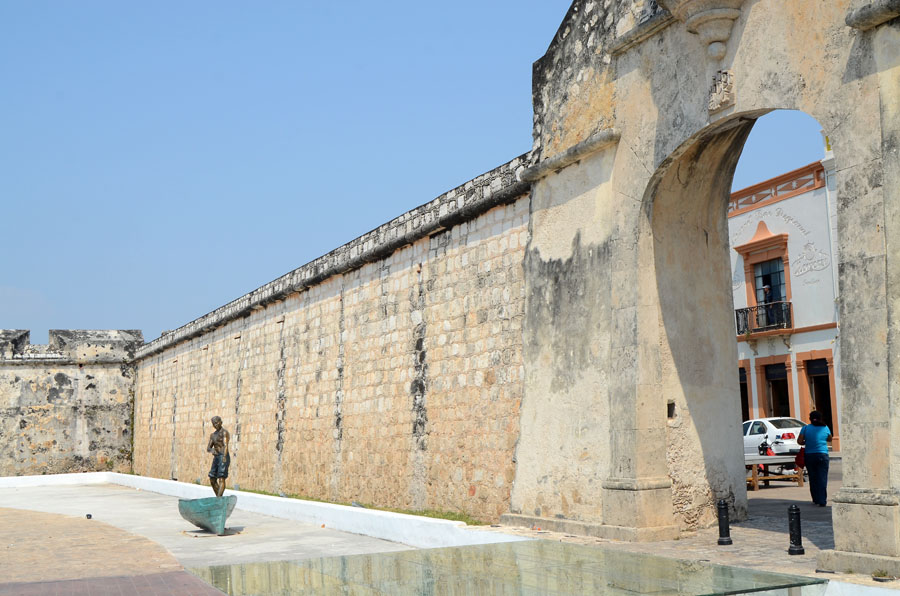 |
That clear plexiglass or hardened glass bridge was the most disconcerting thing to step on. That feel never went away. |
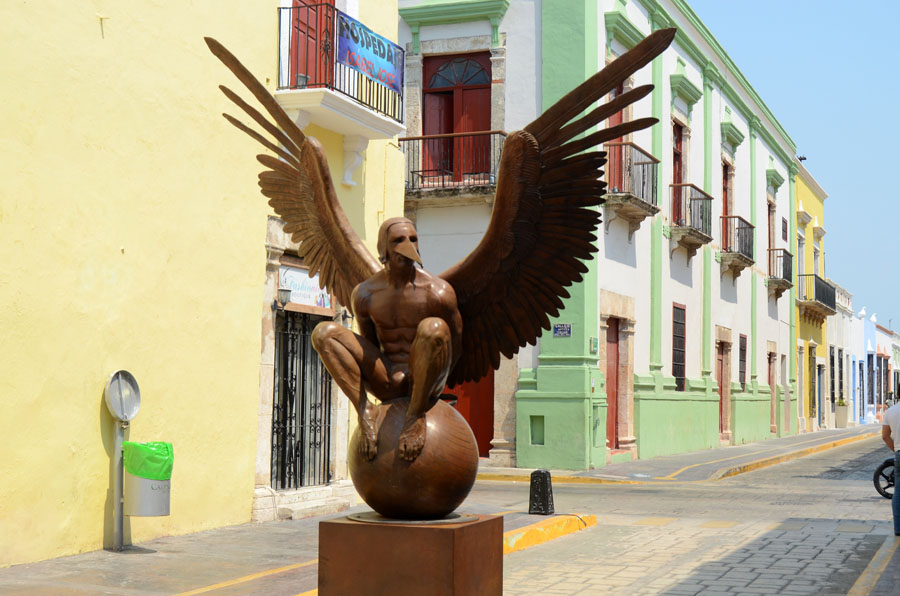 |
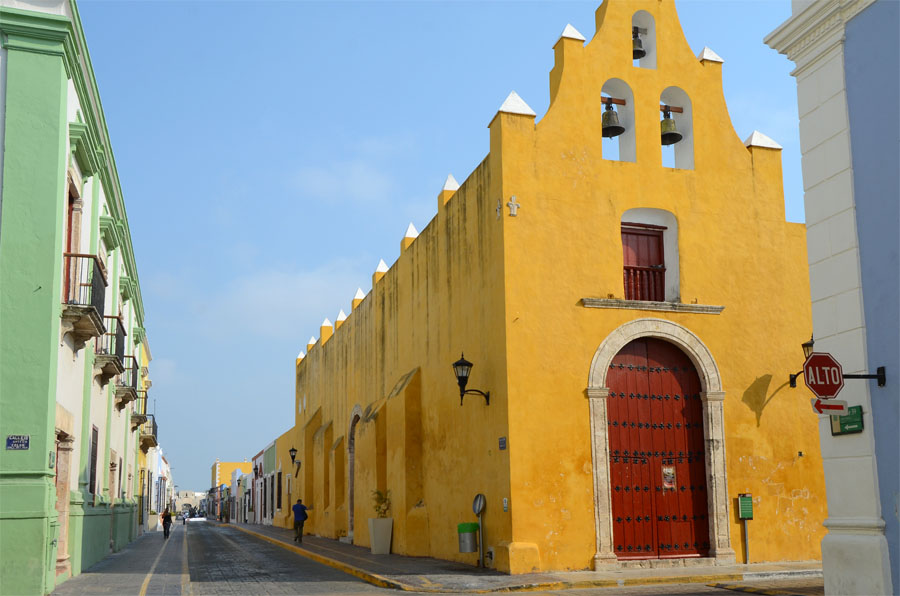 |
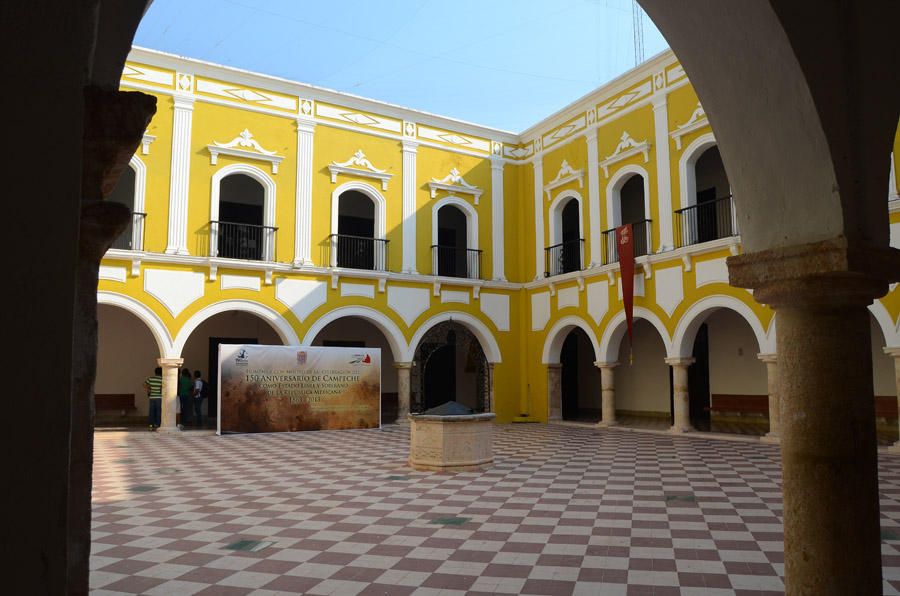 |
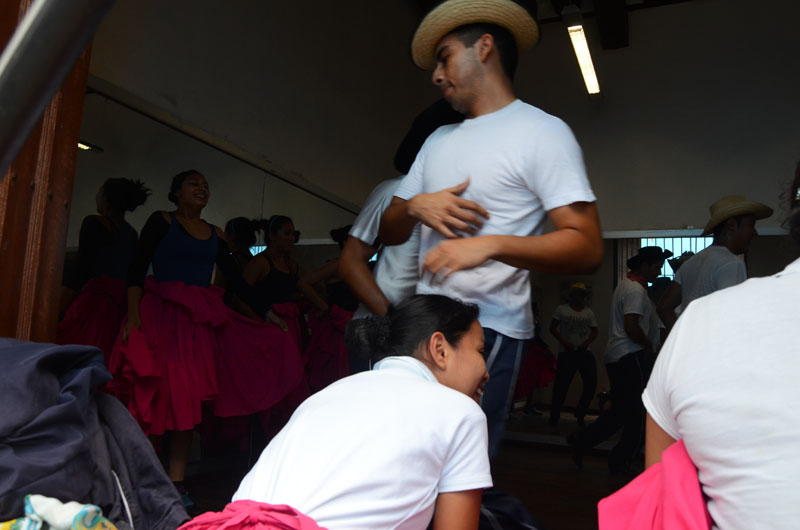 |
 |
A Spanish Dancing School near the hotel where I stayed (and playing to the photographer) |
The Campeche Market
 |
Part of a shoe shining hall |
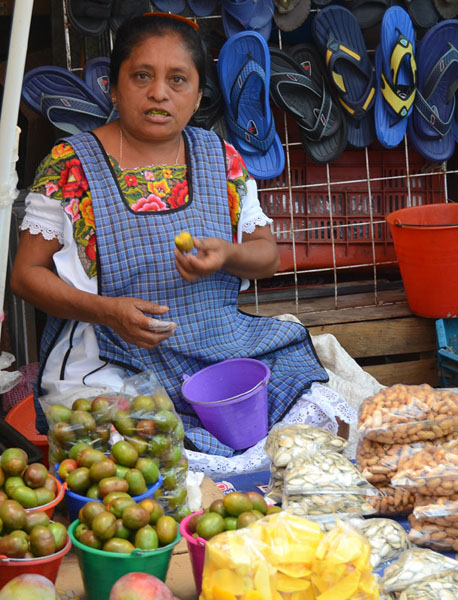 |
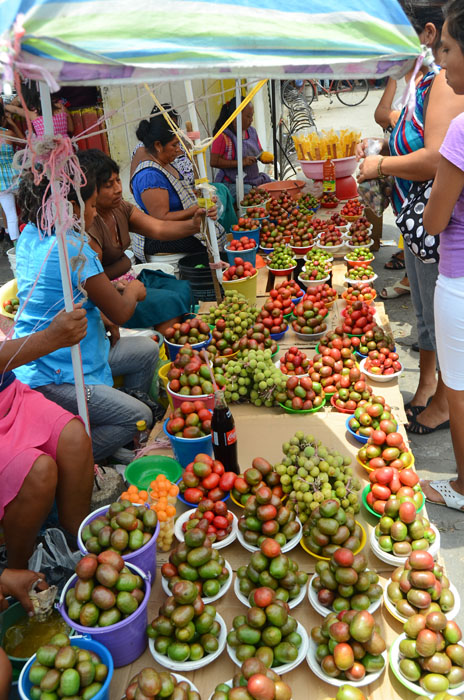 |
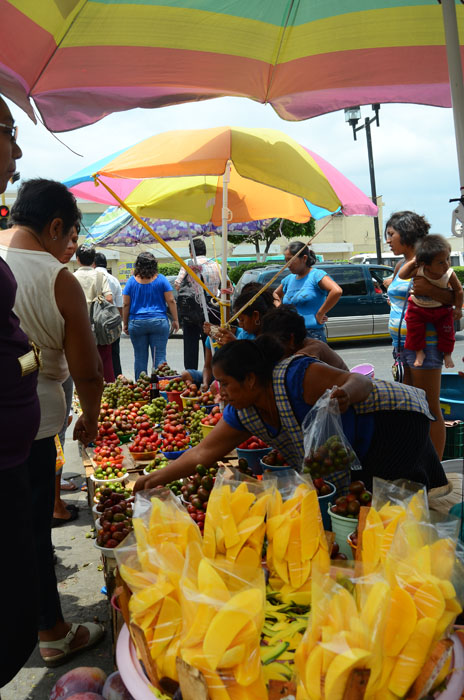 |
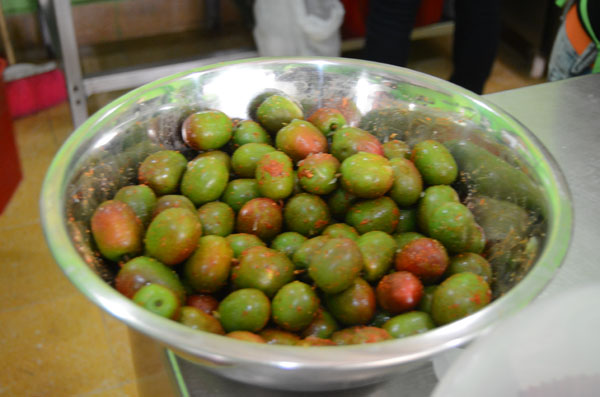 |
Cirguela, the fruit of the moment, and always the ready-to-eat mango |
The ocean front
 |
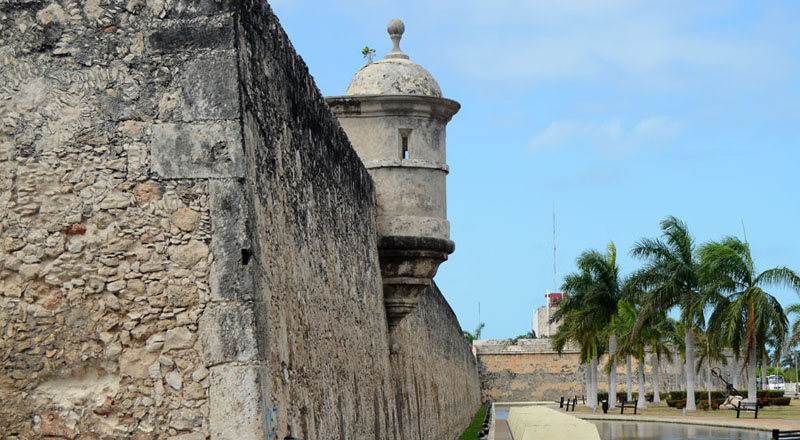 |
Once beleagered by pirates, the city learned to defend itself |
 |
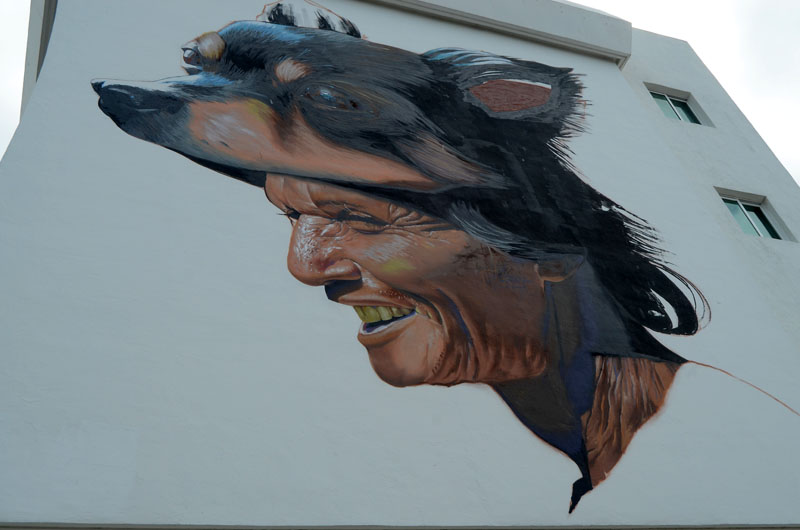 |
Murals: One of them may show us what chihuahuas were used for - hats (a larger breed, back then) - just kidding |
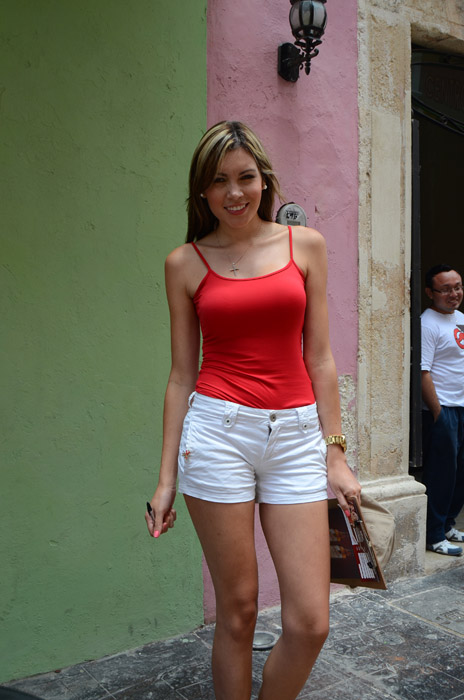 |
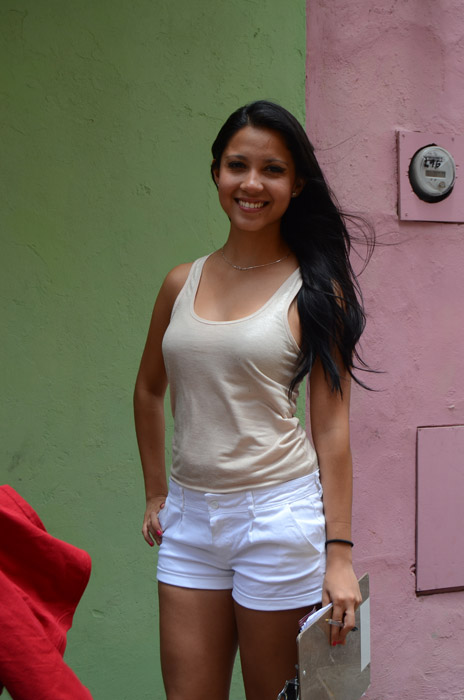 |
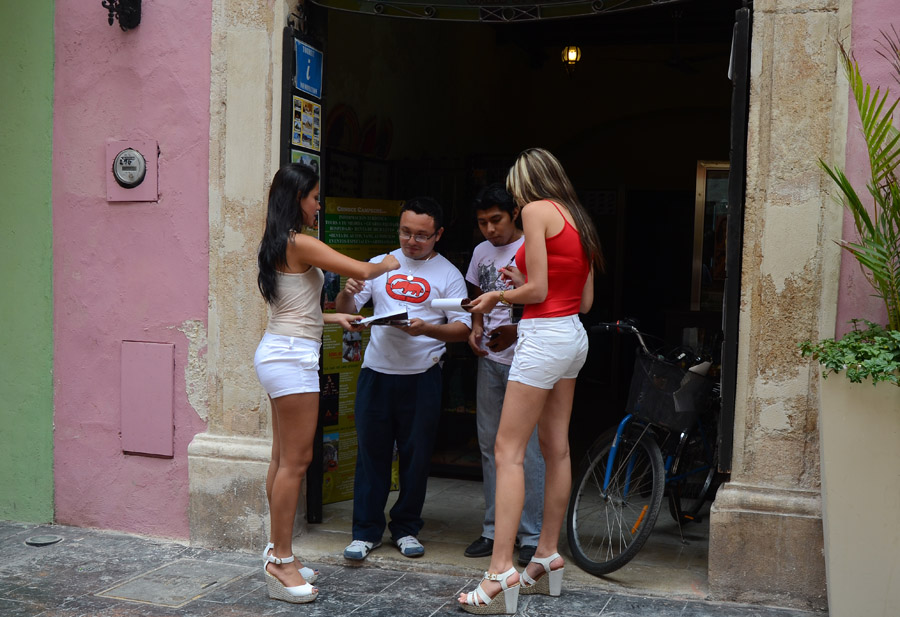 |
A couple of models signing up stores and bars for a new brand of beer, and for them, shooting fish in a barrel. |
A weekend evening celebration at the old city square
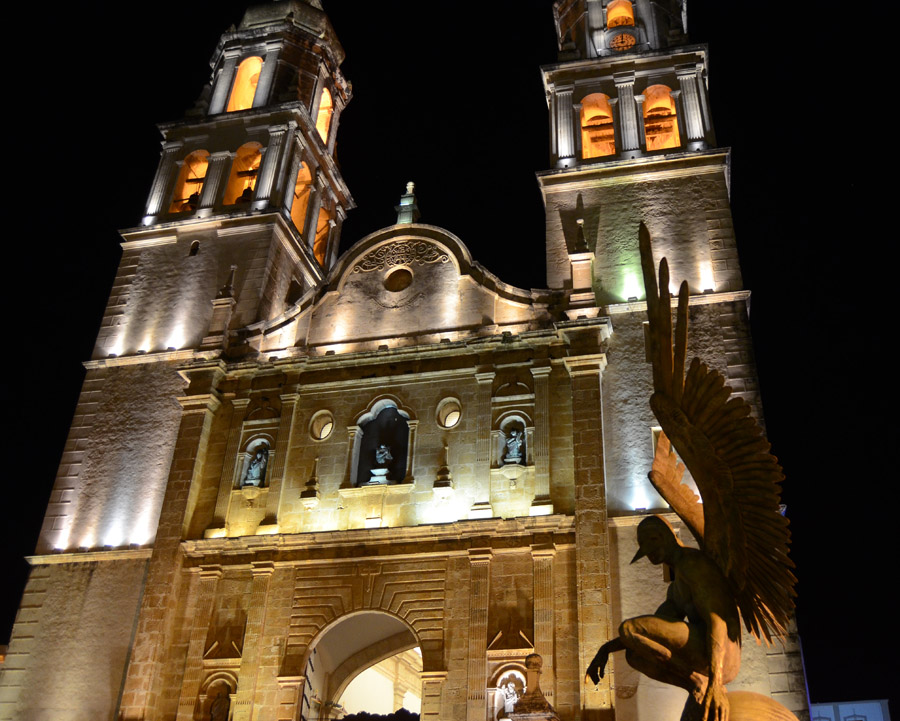 |
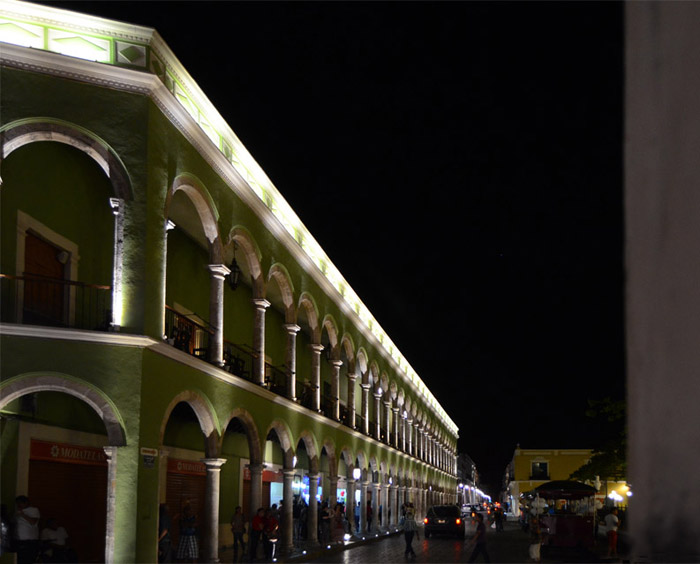 |
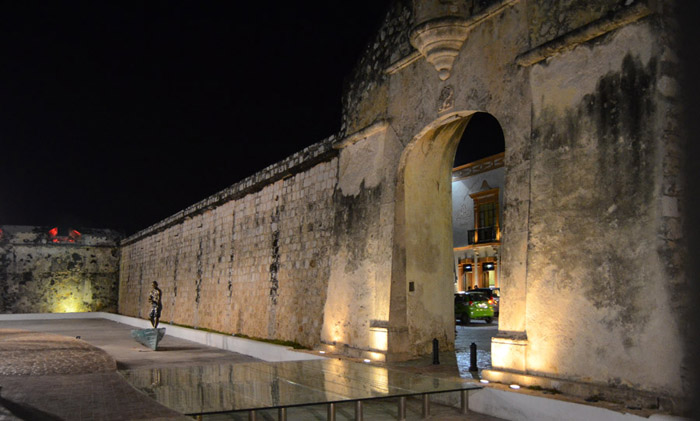 |
Resplendent at night, too, the old city wall, and occasionally open to the public |
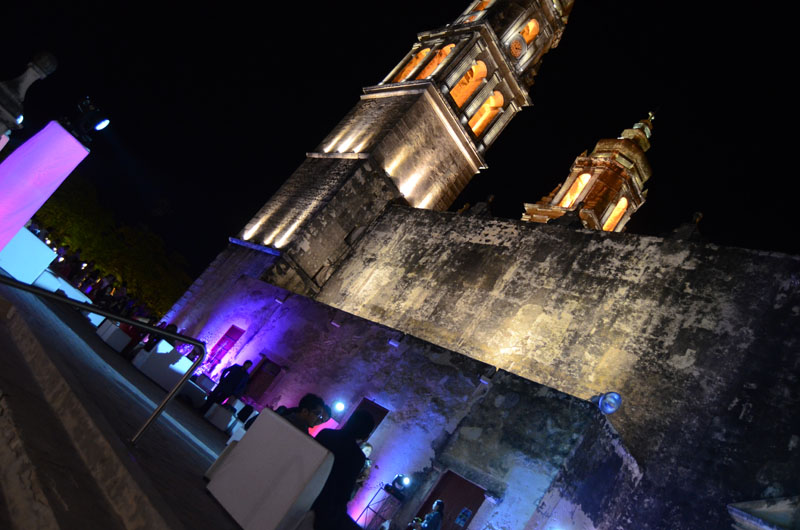 |
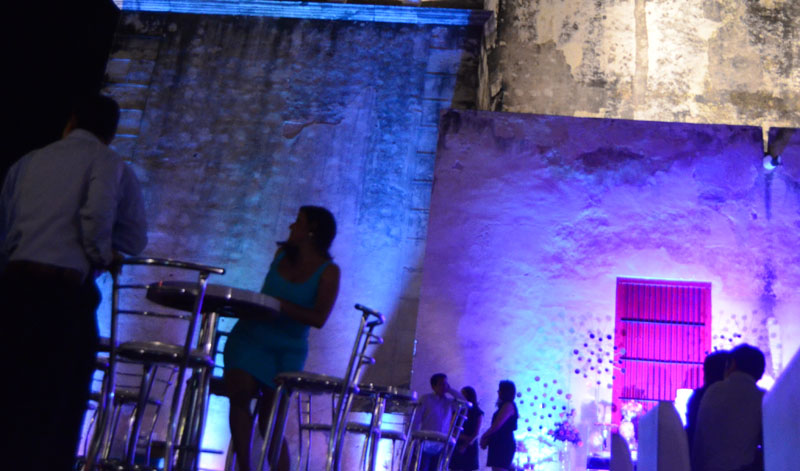 |
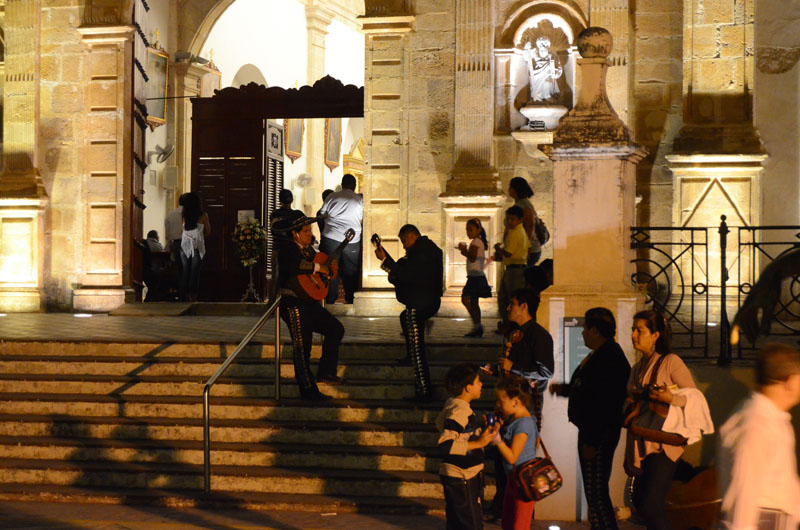 |
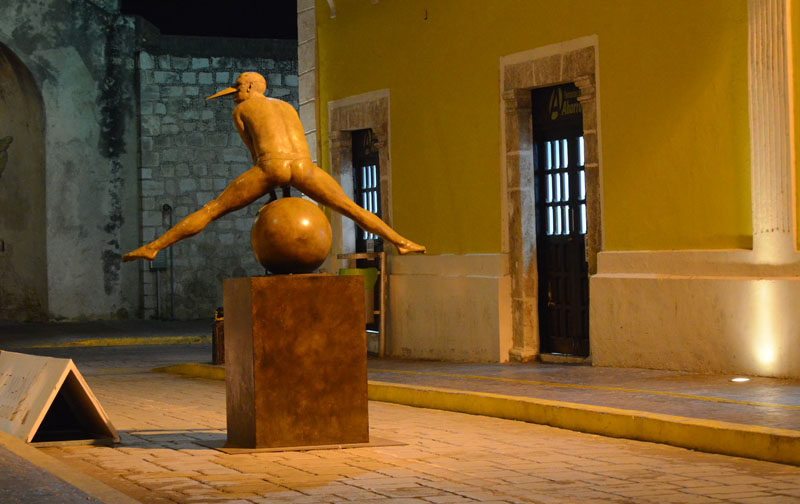 |
And now it's time to turn my back on Campeche and continue on to Xpujil and Calakmul |